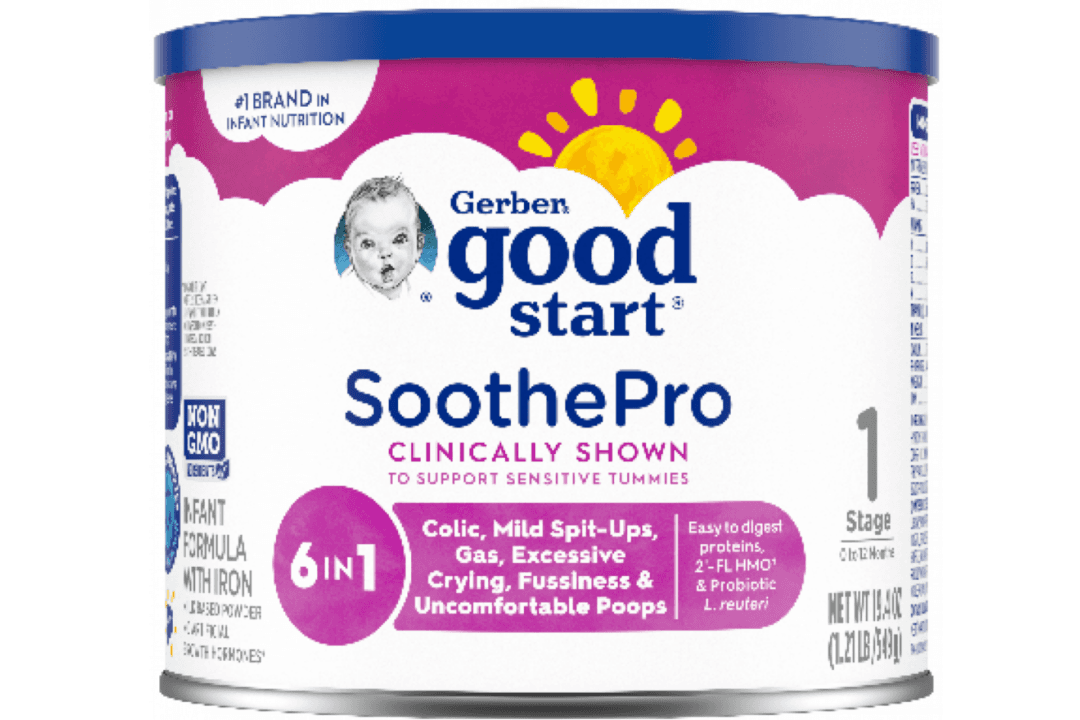Gerber baby formula that was recalled in March due to a possible link to Cronobacter sakazakii contamination was distributed to multiple retailers even after the initial recall notice was published, federal health officials said on May 14.
Gerber parent company Perrigo on March 17 announced the voluntary recall of certain lots of Gerber Good Start SoothePro Powdered Infant Formula that was manufactured in Eau Claire, Wisconsin, between Jan. 2 and Jan. 18.




